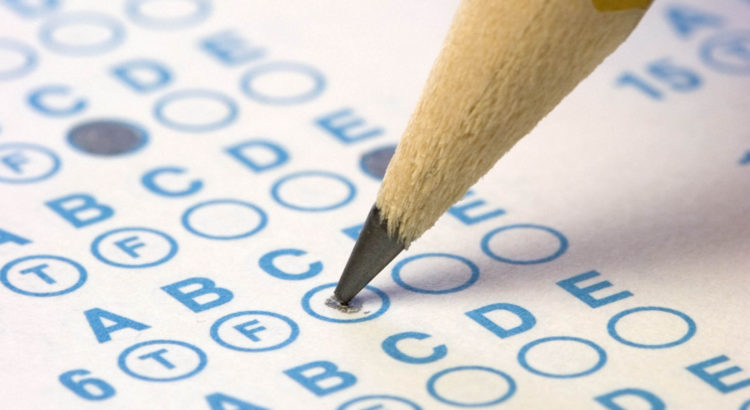Estados Unidos/Agosto de 2017/Autora: Victoria Advocate/Fuente: Longview News Journal
Resumen: Los nuevos resultados de STAAR salieron la semana pasada, pero arrojaron tanta luz sobre las escuelas públicas como el eclipse total de sol del lunes. STAAR significa las Evaluaciones de Preparación Académica del Estado de Texas, pero la gente lo conoce más comúnmente como las pruebas estandarizadas que cambian tanto cada año que se vuelven completamente inútiles. Los padres controlan debidamente los resultados de su escuela, pero la información es tan compleja y cambiante cada año que aquellos sin un doctorado en educación tienen poca idea de lo que significa. Cada sesión de los últimos 40 años, los legisladores han manipulado con las pruebas estandarizadas y han logrado hacer todo el proceso un colosal desperdicio de tiempo y dinero. Texas ha gastado 1.500 millones de dólares en las últimas dos décadas en la máquina de pruebas y ha cometido terribles errores en el camino.
The new STAAR results came out last week, but they shed about as much light on public schools as Monday’s total eclipse of the sun.
STAAR stands for the State of Texas Assessments of Academic Readiness, but people know it more commonly as the standardized tests that change so much every year that they become completely useless.
Parents dutifully check their school’s results, but the information is so complex and shifting each year that those without a doctorate in education have little idea what it all means.
Each session for the past 40 years, legislators have tinkered with standardized testing and have managed to make the entire process a colossal waste of time and money. Texas has spent $1.5 billion in the past two decades on the testing machine and committed terrible blunders along the way.
In 2011, a group of concerned mothers formed Texans Advocating for Meaningful Student Assessments to try to put a stop to the madness. Before this past session started, the group presented a list of recommendations to legislators and examples of serious problems with the existing system. These are just a few of the alarming examples:
In 2015, Lewisville ISD and Arlington ISD had to pay tens of thousands of dollars to prove serious errors in standardized test grading. The next year, 50 Houston superintendents demonstrated similar problems, and parents from Dallas, Houston and Austin sued to have STAAR results thrown out for elementary and middle schools across the state.
Education Testing Services, the company that won a $240 million state contract to handle STAAR, uses uncertified graders — people from around the country who have shown no proficiency for writing — to grade students’ writing tests.
Since STAAR replaced the previous alphabet soup of testing, TAKS, four years ago, the testing has been flawed from computer glitches, tests misaligned with curriculum and grading problems.
Basically, the state bureaucracy has bungled this process in almost every way imaginable. The system continues because politicians think they can keep the public stirred up and confused.
About the only thing decades of standardized testing has proved is that more affluent students generally score better than poorer students. What it has failed to do is anything useful, such as to help students at all levels show progress during the school year.
For that, schools always have depended upon good teachers. They are the ones who tailor their lessons to each student and inspire learning.
Sadly, the culture of standardized testing stamps out individual inspiration from both teachers and students. Yes, students should have to pass tests, but the state and federal government doesn’t have to insert itself into the process.
Politicians often talk about the good old days of education and claim schools today are failing. But those over 40 know that schools of the past didn’t have to endure the education bureaucracy.
In the race to create a fast-food model of education, the United States has lost its way. School districts spend exorbitant amounts of money and time on playing the game rather than teaching students.
The solution is so simple it completely eludes lawmakers: Replace high-stakes standardized testing with meaningful student assessments that provide timely and useful feedback to teachers, students and parents. Local school districts who know their students best should handle these assessments.
National tests, such as the ACT and SAT, will remain valuable measurements for high school achievements. At the lower levels, the Iowa Test of Basic Skills and others can remain useful diagnostic tools. But the state and federal governments need to get completely out of the testing business.
Fast-food education is starving the nation’s children. Education expert and author Sir Ken Robinson wisely notes that education is about people, about their need for a balanced and diverse diet of learning.
«Most political strategies start from the top down,» Robinson said in a 2013 TED talk. «The more governments go into command-and-control mode, the more they misunderstand the nature of teaching and learning.»
Fuente: https://www.news-journal.com/news/2017/aug/23/other-voices-standardized-testing-is-killing-educa/







 Users Today : 20
Users Today : 20 Total Users : 35459615
Total Users : 35459615 Views Today : 52
Views Today : 52 Total views : 3418024
Total views : 3418024